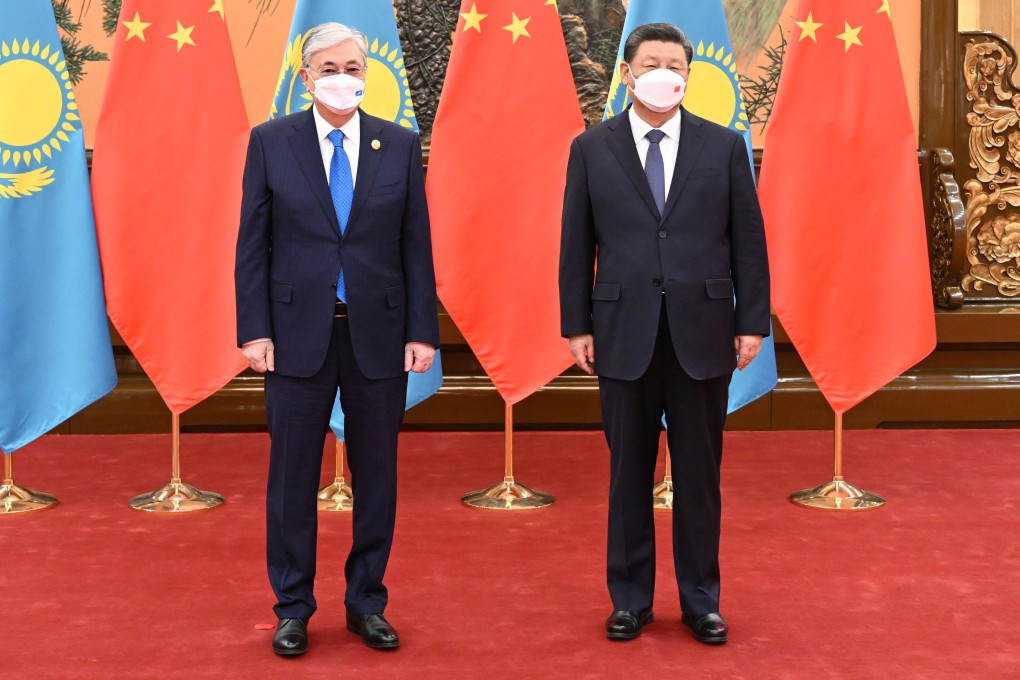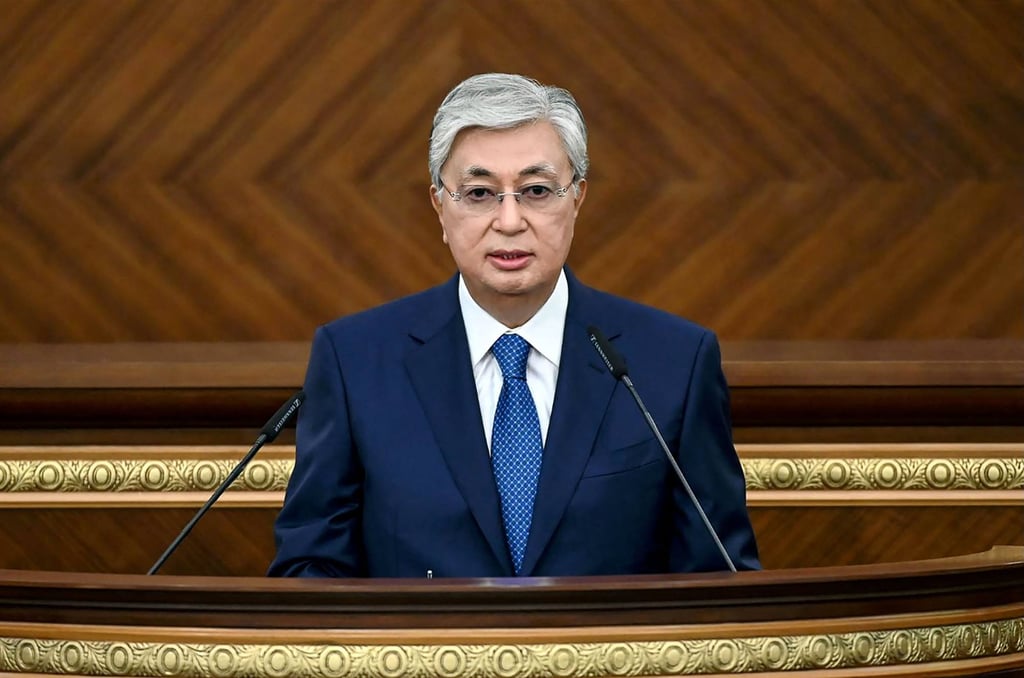Advertisement
Xi Jinping to visit Kazakhstan in first trip out of China since pandemic began
- Chinese president will meet counterpart Kassym-Jomart Tokayev for talks, according to Kazakh government spokesperson
- It could be followed by a trip to Uzbekistan to attend the SCO summit where Xi would meet Russian leader Vladimir Putin
Reading Time:3 minutes
Why you can trust SCMP
14

Finbarr Berminghamin Brussels
Chinese President Xi Jinping will visit Kazakhstan next week, in what will be his first overseas trip since the start of the coronavirus pandemic, a Kazakh government spokesperson said.
The visit will take place on September 14, according to Monday’s announcement at a briefing by the Kazakh foreign ministry, reported in local media.
It follows months of speculation about the location of Xi’s first trip abroad since he went to Myanmar in January 2020. Beijing’s strict zero-Covid policy has curtailed travel inside and out of the country, and Xi and other senior figures have not left China since the start of the pandemic.
Advertisement
Of the 25 Politburo members, only foreign policy chief Yang Jiechi has travelled abroad. However, No 3 leader Li Zhanshu will begin an 11-day trip on Wednesday, starting in Russia, in a sign the top officials are resuming international travel.
Indonesian President Joko Widodo has said Xi will visit Bali for the Group of 20 summit in November, but it has not been confirmed by Beijing.

Xi will meet Kazakh President Kassym-Jomart Tokayev for talks the host government said were “aimed at further deepening the eternal comprehensive strategic partnership and developing political, trade, economic, cultural and humanitarian cooperation”.
Advertisement
Select Voice
Choose your listening speed
Get through articles 2x faster
1.25x
250 WPM
Slow
Average
Fast
1.25x